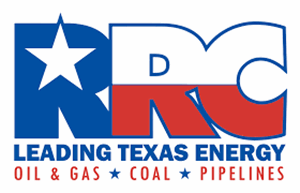TRRC op-ed: Oil & gas industry needs STEM students—Texas education regulator does right by Texas textbooks
Texas made headlines this weekend after the State Board of Education (SBOE) rejected efforts to villainize oil and gas in textbooks used by our public schools.
In the Lone Star State, education and fossil fuels have a symbiotic relationship. Here, 99% of the state's oil and gas royalties are deposited in the Permanent School Fund and Permanent University Fund—meaning in 2021 alone, hydrocarbons contributed $2 billion towards educating the next generation of Texans. In return, the oil and gas industry gets an educated workforce.
Some basic facts. In Texas, our oil and gas industry employs about 350,000 workers at an average salary of $139,000—103% higher than other private sector jobs. Many of these jobs are trade labor, where skills can be acquired at a technical college, with lower tuition and easier admissions. At a time of record student loan debt and a stagnant economy, these are the kinds of jobs that the American economy needs, and it’s how you build a strong middle class.
It was with this in mind, that as an energy policymaker and regulator for Texas’ oil and natural gas industry, I felt compelled to weigh in on the proposed textbooks. Fossil fuels are not evil—despite what the mainstream media says—and we don’t need to be teaching impressionable minds that they are. It’s not “fair and balanced” to blame oil and gas for climate change without also telling the truth about the real benefits that human society receives from them.
Fossil fuels make our 21st century way of life possible by powering more than 80% of global energy, making 96% of everyday consumer items, and paying billions of dollars in taxable revenue that benefit federal, state and local governments. In fact, the industry supports more than 30% of the state’s economy, making the Texas economic miracle possible. Since the Industrial Revolution, fossil fuels have done a lot for mankind, having lifted billions out of poverty and decreased climate-related deaths by 99%.
Real progress in curbing emissions. All energy sources require environmental trade-offs, including wind and solar. But the fossil fuel industries have done a superb job at curbing emissions through technology. EPA-regulated emissions are down about 80% over the half-century, methane emissions are down 66%, and carbon dioxide (CO2) emissions are down about 13% over the last decade. Radical environmentalists have run out of reasons in the U.S. to shut down domestic production, which is why they’re turned to CO2. Climate catastrophists are using a CO2 boogeyman and the threat of apocalypse to scare people into “green” submission.
And it’s having an impact on society, as the popularity of being “climate conscious” is trendy. About 60% of adults and kids have some anxiety about climate change, and that’s having an impact on the learning experienced by our young people and types of careers they are interested in. For example, a pwc report highlights that 14% of millennials wouldn’t want to work in oil and gas because of its negative image, and about 66% of teens think the industry is more harmful than good. This is alarming, because our state and nation are going to need future STEM students to fuel our economy and way of life for decades to come.
Theory vs. reality. In today’s world, if you question a topic as controversial as man-made climate change, you get stigmatized and called a “denier” (or essentially a “flat earther”). Science is the discovery of truth, meaning science is never settled. Once upon a time, the brightest scientists thought the earth was flat, until they proved it wasn’t. At another time, similar scientists thought the sun revolved around the earth, until they proved it didn’t.
Man-made climate change is a theory, just like those other examples; and it is a theory that has its justified skeptics. It’s not the Salem Witch Trials, and we shouldn’t burn someone at the stake, because they have a different opinion. We should encourage our kids to seek truth, not indoctrinate them with propaganda like the idea that oil and gas will cause the end-times.
The Lone Star State needs a challenging, unbiased, and real-world approach to education. We need more STEM students, educated and prepared for in-demand, high-paying jobs in our energy sector. The last thing our state needs is a radical environmentalist agenda teaching our kids to hate fossil fuels.




